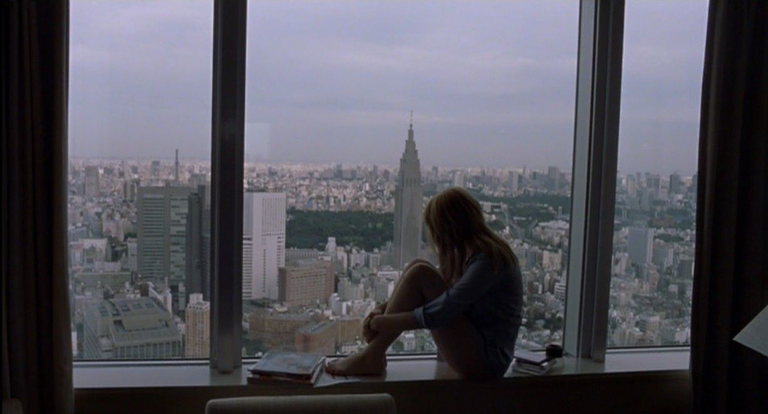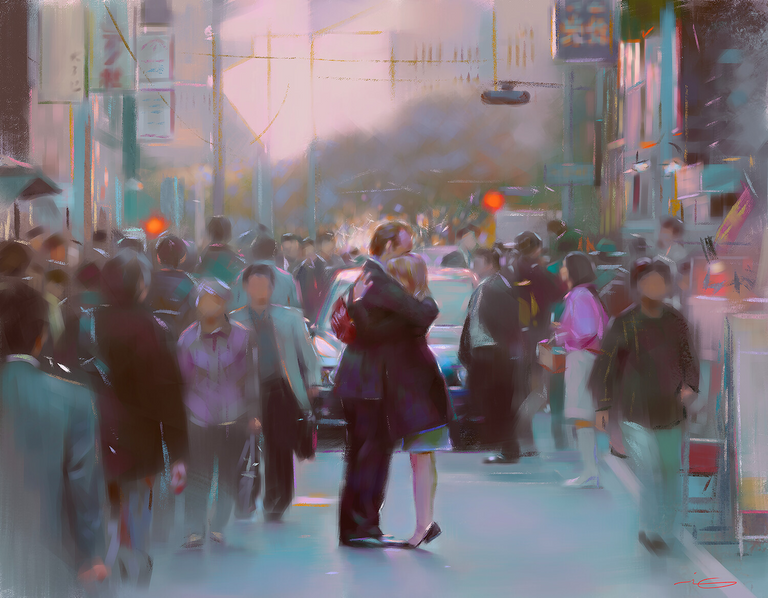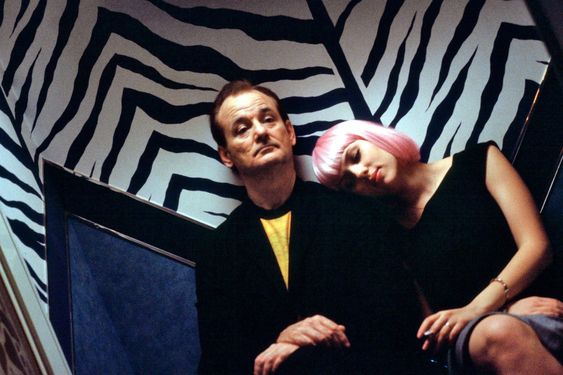Pocas cosas han cautivado a las personas en el transcurso de la historia como lo es el amor, o al menos el amor romántico como lo conocemos hoy en día. Miles de sonetos, canciones, películas, y en general, cualquier medio de expresión ha sido usado para poder tratar de definir los sentimientos relacionados con el enamoramiento. Así mismo, todos en algún punto ha llegado a experimentar un tipo de amor, bien sea hacia familiares, mascotas, o el que me llevo a escribir este post, el amor romántico.
Y es que la mayoría de las personas parecen tener una idea (moldeada por lo que vemos en medios audiovisuales mayormente) de cómo debería empezar un amor y como debería desarrollarse.
Una forma de ver este amor romántico que me ha conmovido es el mostrado en la película Lost in Translation de Sofia Coppola del año 2003, en la cual podemos observar la historia de cómo un actor de cine que se encuentra grabando un comercial en Tokio conoce a una Licenciada de Filosofía que atraviesa la crisis de los veintitantos mientras tiene serias dudas con respecto a su matrimonio.
Ambos personajes protagonistas se hayan en unos puntos de crisis de identidad bastantes marcados. Por un lado, el personaje de Bob (Bill Murray) se haya lejos de casas grabando un comercial para una marca de Whisky, y aunque sigue siendo una persona famosa, es más conocido por sus trabajos del pasado que por su desempeño actual, además de sentirse distanciado de su esposa e hijos. Por su parte, el personaje de Charlotte (Scarlett Johansson) se encuentra en la crisis de no saber qué hacer con su vida luego de haber culminado sus estudios universitarios, hallándose en una relación que se volvió ajena a sí misma y de la cual se terminó volviendo una simple espectadora. Ambos personajes viviendo este periodo en una ciudad en la cual no conocen a nadie, y debido a la barrera del idioma y la cultura difícilmente pueden ser comprendidos, aislándolos a ambos en un sentimiento de soledad bastante marcado.
Durante buena parte de la película ambos personajes desarrollan sus sentimientos de soledad por medio de un proceso de introspección. Mientras Charlotte trata de conocer lugares distantes del Tokio de Neón, Bob se rehúsa a salir del hotel a menos que sea por trabajo. Y en la búsqueda de encontrarse solo pueden encontrar un sentimiento: incomodidad. Mientras Bob no puede ni bañarse cómodamente en el ambiente en el que decidió mantenerse, Charlotte continua como una simple espectadora de Tokio como lo es de su relación y de su propia vida, no involucrándose realmente para que suceda algo.
Y en medio de ese proceso de introspección y de confusión, ambos se coinciden. Se identifican como personas similares al ser ambos occidentales, pero este sentimiento de familiaridad va más a allá. Ambos son capaces de sentir a su manera lo que el otro está pasando, el vacío que está sintiendo, y sin ofrecer ningún tipo de salvación, cada uno le ofrece al otro lo único que realmente necesitaban: comprensión.
En medio de ese espacio de confusión y aislamiento ambos consiguieron un compañero con el cual podían mostrarse como lo que eran, personas frágiles con la necesidad de hablar sobre la falta de cumplimiento de sus expectativas de vida y el miedo sobre lo que deparara la vida. No era un amor de besos y caricias, con grandes gestos para demostrar que estaban enamorados. Era un amor de dos personas solitarias y sin un rumbo claro en la vida. Era un amor que no necesitaba de muchas palabras y momentos para darle a esa pareja la sensación de acompañamiento y plenitud y siento que es algo muy bien transmitido a lo largo de la película.

Este también era un amor que no estaba destinado a durar. Bob tendría que regresar a América de vuelta con su familia y Charlotte debía hacerle frente a su matrimonio y a su propio destino. Al final todo se acabó. Ellos no estuvieron juntos, y nunca sabremos que paso con ellos. Pero esos días que compartieron juntos les permitió sentirse vivos y en el momento presente. Ambos consiguieron claridad en un momento de incertidumbre y una compañía en un punto en que se hayan más distantes del mundo que en cualquier otro momento. Como dijo Bojack, a veces lo único que necesitamos es que una persona pueda decirnos Te veo. Y como en La la land ambos siguieron con sus vidas habiendo vivido dicha experiencia, que por más significativa y enriquecedora que sea, no los podía alejar de su verdadero camino. Ambos debían hacerles frente a sus propios problemas para poder seguir mejorando.
Lost in Translation es una película que se terminó volviendo un safe place para mí y la suelo mirar cuando, al igual que sus personajes, siento que he perdido un poco el rumbo de mi vida, y aunque al igual que a Bob y Charlotte, vivir eso junto a ellos no me da nunca una respuesta clara de que debo hacer, me permite sentirme entendido. Sabiendo que no importa lo que pase nunca se está realmente solo ni realmente perdido.

Few things have captivated people throughout history as much as love, or at least romantic love as we know it today. Thousands of sonnets, songs, movies, and in general, any means of expression has been used to try to define the feelings related to falling in love. Likewise, everyone at some point has come to experience a type of love, either towards family members, pets, or the one that led me to write this post, romantic love.
And most people seem to have an idea (shaped by what we see in audiovisual media mostly) of how a love should begin and how it should develop.
One way of looking at this romantic love that has touched me is the one shown in Sofia Coppola's 2003 film Lost in Translation, in which we can see the story of how a film actor who is shooting a commercial in Tokyo meets a philosophy graduate who is going through a mid-life crisis while having serious doubts about her marriage.
Both protagonists are at points of identity crisis quite marked. On the one hand, Bob's character (Bill Murray) is away from home filming a commercial for a brand of whiskey, and although he is still a famous person, he is more known for his past work than for his current performance, in addition to feeling distanced from his wife and children. Meanwhile, Charlotte's character (Scarlett Johansson) is in the crisis of not knowing what to do with her life after finishing her university studies, finding herself in a relationship that became alien to herself and of which she ended up becoming a mere spectator. Both characters live this period in a city in which they know no one, and due to the language and cultural barrier they can hardly be understood, isolating them both in a feeling of loneliness quite marked.
During a good part of the film, both characters develop their feelings of loneliness through a process of introspection. While Charlotte tries to get to know distant places in Neon Tokyo, Bob refuses to leave the hotel unless it is for work. And in their quest to find each other they can only find one feeling: discomfort. While Bob can't even bathe comfortably in the environment he decided to stay in, Charlotte continues as a simple spectator of Tokyo as she is of their relationship and her own life, not really getting involved to make anything happen.
And in the midst of that process of introspection and confusion, the two of them coincide. They identify themselves as similar people as they are both Westerners, but this feeling of familiarity goes beyond that. Both are able to feel in their own way what the other is going through, the emptiness they are feeling, and without offering any kind of salvation, each offers the other the only thing they really needed: understanding.
In the midst of that space of confusion and isolation they both got a partner with whom they could show each other for what they were, fragile people with the need to talk about the lack of fulfillment of their life expectations and the fear about what life would bring. It was not a love of kisses and caresses, with grand gestures to show that they were in love. It was a love of two lonely people with no clear direction in life. It was a love that didn't need a lot of words and moments to give that couple the feeling of companionship and fulfillment and I feel that this is something very well conveyed throughout the film.

This was also a love that was not meant to last. Bob would have to return to America back to his family and Charlotte had to face her marriage and her own fate. In the end it was all over. They were not together, and we will never know what happened to them. But those days they shared together allowed them to feel alive and in the present moment. They both got clarity in a time of uncertainty and companionship at a point when they were more distant from the world than at any other time. As Bojack said, sometimes all we need is for one person to be able to say I see you. And as in La La Land, they both went on with their lives having lived such an experience, which, as meaningful and enriching as it is, could not take them away from their true path. Both had to face their own problems in order to continue to improve.
Lost in Translation is a movie that ended up becoming a safe place for me and I usually watch it when, like its characters, I feel that I have lost my way in life, and although, like Bob and Charlotte, living with them does not give me a clear answer as to what I should do, it allows me to feel understood. Knowing that no matter what happens you are never really alone and never really lost.